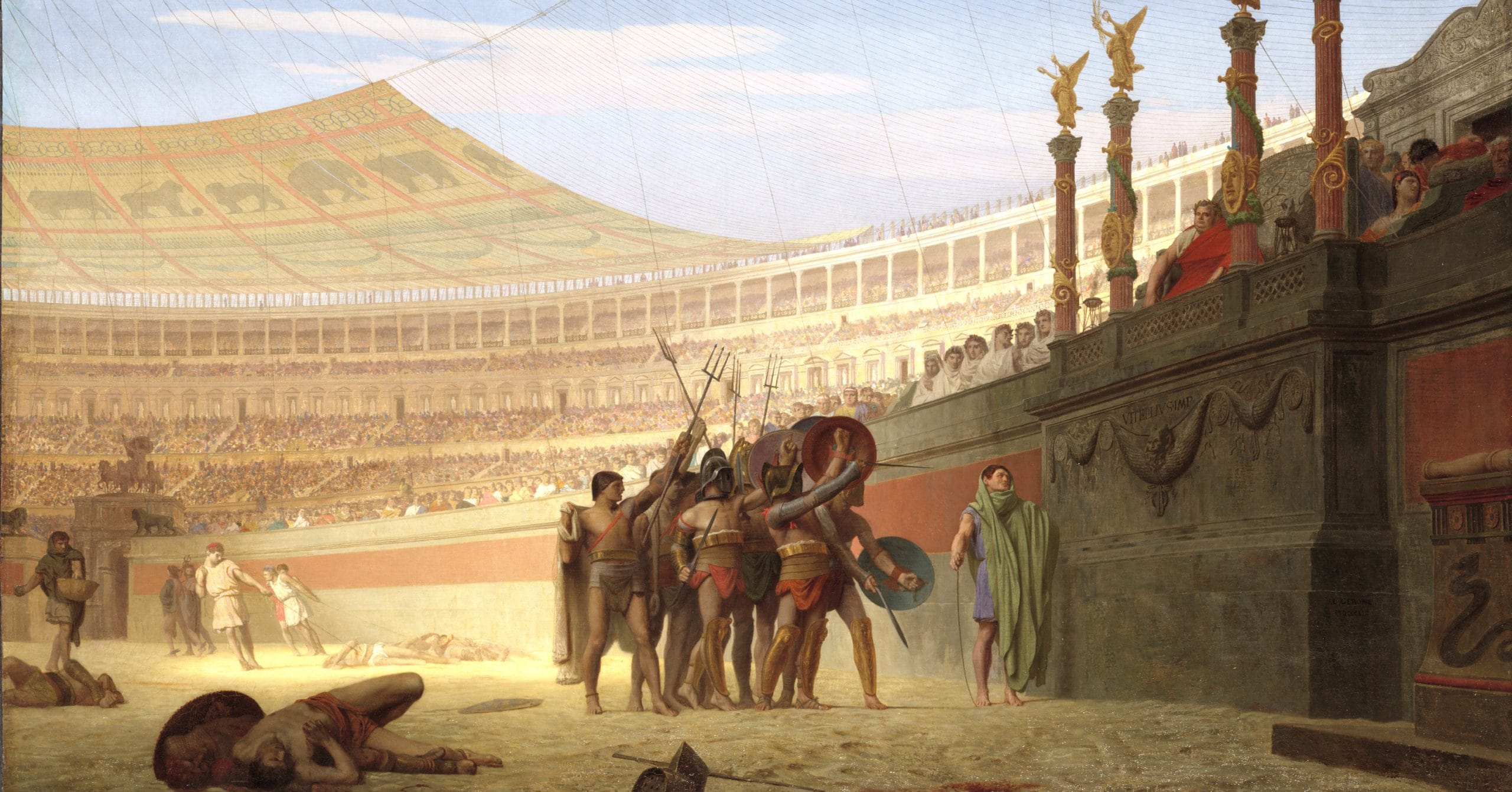It is widely believed that in ancient Rome, a gladiatorial fight began with the participants uttering a cry addressed to the ruler. We checked whether this view corresponds to reality.
The image of gladiators who, before a mortal fight in the arena of the Colosseum, pass in front of the emperor’s box and greet him, is familiar to almost everyone from numerous books, paintings, films, TV series and video games on ancient themes. Similar scenes, for example, are in the novel by Henryk Sienkiewicz "Kamo are coming" and the play by Bernard Shaw "Androcles and the Lion". The poet Dmitry Merezhkovsky even wrote a poem Morituri, in which he compared himself and his generation to the doomed gladiators. The phrase is associated with gladiators in numerous reference publications and even in quite authoritative works - for example, in the book of the French historian Jerome Carcopino published in 1940 "Daily Life of Ancient Rome. Apogee of the Empire".
Ancient sources mention the famous cry “Hail Caesar! (Hail, Emperor!) Those going to death salute you!” extremely few in number. It is cited by only two authors: Suetonius Tranquillus in the famous “Lives of the Twelve Caesars” (written around 120) and Cassius Dio, who lived about a century later, in “Roman History”. Moreover, both of them describe the same event - a re-enactment of a naval battle (the so-called naumachia), organized by Emperor Claudius in 52 on Lake Fucinus, east of Rome.
Suetonius writes: “Before the descent of Lake Fucin, he [Claudius] staged a naval battle on it. But when the soldiers shouted to him: “Hello, Emperor, those going to death greet you!” - he answered them: “Or maybe not” - and, seeing mercy in these words, they all refused to fight. Claudius hesitated for a long time whether to deal with them with fire and sword, but then he jumped up and, hobbling disgustingly, ran along the shore with threats and persuasion until he forced them to fight. The Sicilian and Rhodian fleets fought in this battle, twelve triremes each, and the sign was given by a silver triton with a trumpet, rising from the water with the help of a machine” (translation by M. L. Gasparov).
And so this is an event describes Dio Cassius: “Claudius was eager to organize a naumachia on the lake. By building a wooden wall around it and arranging places for spectators, he gathered countless people. Claudius and Nero dressed in military style, Agrippina dressed in a gold-woven robe, and the rest of the spectators were dressed as they pleased. Criminals sentenced to death were supposed to fight in this naval battle; the opponents had fifty ships each and were called “Rhodians” and “Sicilians.” At first, they, having gathered in one formation, unanimously addressed Claudius with the following greeting: “Hello, emperor, those going to death greet you!” But they did not receive a pardon - they were ordered to fight as expected. Then they began to simply sail past the enemy ships and did not engage in battle with each other until they were forced to fight for real” (translation by A.V. Makhlayuk).
Sea battle arranged by Claudius described also Cornelius Tacitus, an older contemporary of Suetonius, but he does not mention the appeal of the fighters to the emperor.
Thus, we have evidence that the famous cry sounded only once, and not in the Colosseum, which in the time of Claudius was still was not built, and on Fuqing Lake. How notes historian Harry Leon, this greeting was hardly traditional, since, according to Suetonius' account, the emperor's response, “Perhaps not,” caused confusion. If we were talking about a traditional ceremony, there would hardly be any misunderstanding.
In addition, the participants in the naumachia were not professional gladiators, but prisoners of war and criminals sentenced to execution. These people were truly doomed to death and could turn to the emperor in the desperate hope of pardon. On the contrary, the life of trained gladiators was expensive, and for them the likelihood of dying in the arena was not so great. It is known that in the era of the empire, only in exceptional cases were gladiator fights carried out until the obligatory death of one of them (the so-called fights “without mercy” - sine missione).
Let's summarize. Judging by the sources that have survived to this day, the phrase “Hail, Caesar! Those going to death greet you!” was said only during one specific event (a mock naval battle), and was said by convicted criminals, not professional gladiators. There has never been a tradition to pronounce it. However, thanks to the popularity of Suetonius's book, these expressive words became strongly associated with ancient Roman blood games.
Cover photo: Jean-Leon Gerome. Ave Caesar Morituri te Salutant (1859, Yale University Art Gallery)
Mostly not true
- J. Borio. History of Rome: metamorphoses of the Eternal City
- Arzamas. Henryk Sienkiewicz. “Camo Coming”: How slaves and gladiators lived in Ancient Rome and how the author of books about Polish history managed to reliably describe the times of Nero
- Documentary "Gladiators. The Legend of Spartak"
- D. Voloshin. Gladiatorial fights as a political mass spectacle and a means of “social training” (Rome of the imperial era)
If you find a spelling or grammatical error, please let us know by highlighting the error text and clicking Ctrl+Enter.






